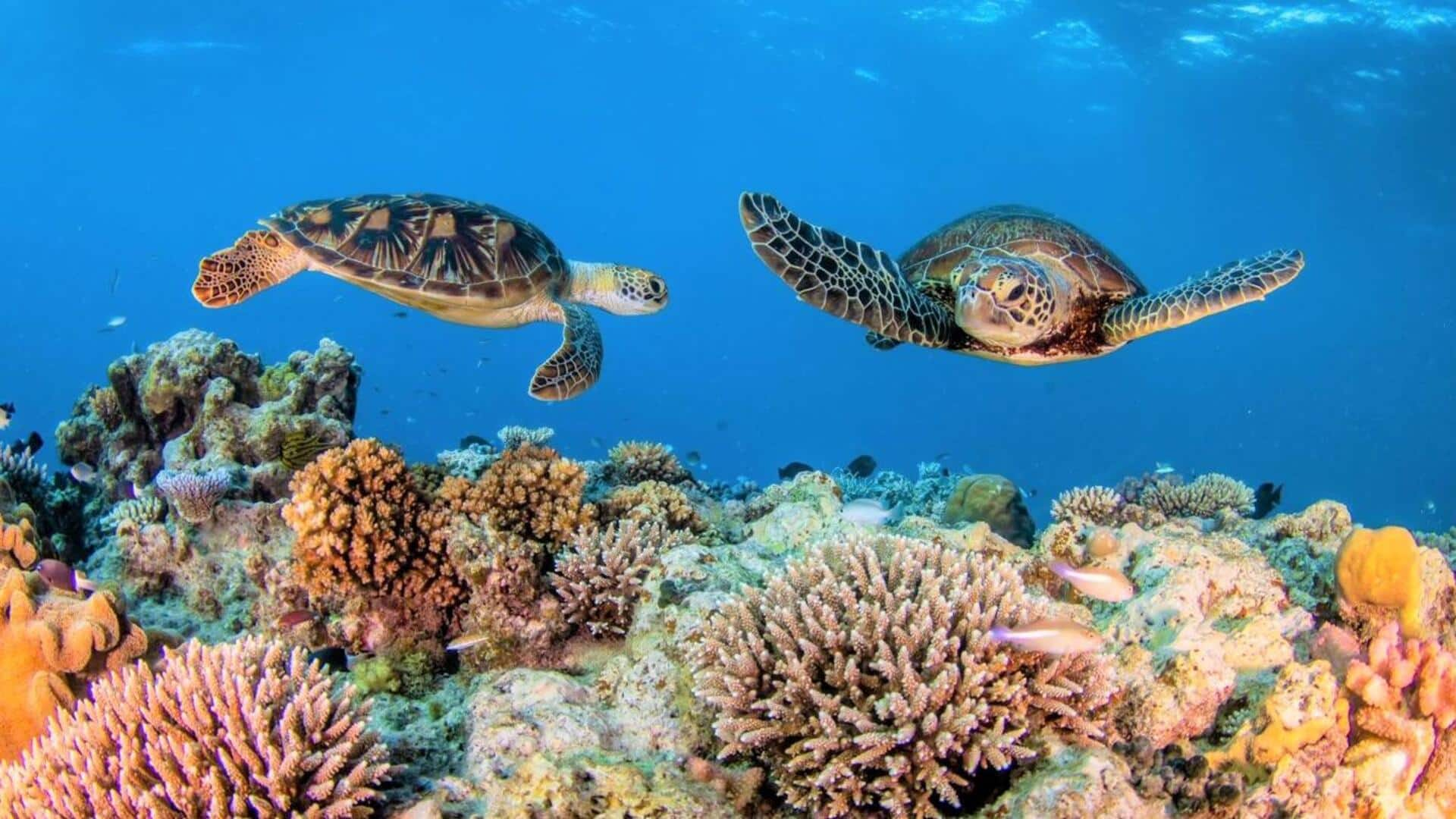
Explore the Great Barrier Reef: 5 eco-adventures you can't miss
What's the story
Australia's Great Barrier Reef is a natural wonder that promises various eco-adventures for nature lovers.
This UNESCO World Heritage site boasts of diverse marine life and gorgeous coral formations.
You can take part in activities that raise awareness for our environment while soaking in the beauty of this underwater paradise.
Here are five eco-friendly adventures you can take at the Great Barrier Reef.
Snorkeling
Snorkeling among coral gardens
Snorkeling in the Great Barrier Reef lets you see the stunning coral gardens up close.
Float above colorful corals with just a mask and snorkel and watch an array of marine species, including fish and sea turtles.
Most tour operators host guided snorkeling trips focusing on reef conservation and educating participants about the importance of preserving these delicate ecosystems.
Scuba diving
Scuba diving for marine life exploration
Scuba diving provides an immersive experience into the depths of the Great Barrier Reef.
Certified divers can opt to explore deeper parts of the reef, where they may come across larger marine creatures, such as manta rays and sharks.
Dive operators often conduct briefings on sustainable diving practices to minimize human impact on marine habitats, ensuring that divers leave only bubbles behind.
Sailing Tours
Sailing tours with environmental focus
Sailing tours provide a peaceful means to explore the reef without leaving a massive carbon footprint.
Many of these tours include stops at remote islands where guests can get an insight into local flora and fauna from expert guides.
Some operators even include eco-friendly practices such as relying on wind power for propulsion or serving locally sourced meals onboard.
Kayaking adventures
Kayaking through mangrove ecosystems
Kayaking through mangrove-lined waterways is another unique way to explore coastal ecosystems around Great Barrier Reef.
As paddlers glide through the narrow channels, they'll not only encounter a variety of birdlife but also learn about the role mangroves play in protecting the shorelines from erosion.
The guided tours place an emphasis on conservation efforts to preserve these essential habitats, making it an educational experience as well.
Citizen science
Participating in citizen science projects
Visitors to the Great Barrier Reef can also contribute directly to scientific research through citizen science projects.
These initiatives enable participants to assist researchers by collecting data on coral health or monitoring wildlife populations during their visit.
Participating in citizen science not only enhances understanding but also fosters stewardship among travelers committed to protecting this natural treasure for future generations.